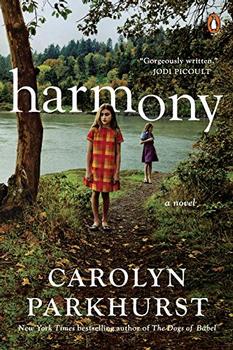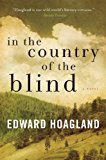Summary | Excerpt | Reading Guide | Reviews | Beyond the book | Read-Alikes | Genres & Themes | Author Bio

In his private, contemplative novel, Enon, author Paul Harding describes a year in the life of Charlie Crosby - grandson of George Washington Crosby, the protagonist of Harding's 2010 Pulitzer Prize-winning novel Tinkers. Set in Enon, the same fictional town as Tinkers, Charlie is devastated after his thirteen-year-old daughter Kate is hit by a car and killed, and he's not altogether surprised when his wife leaves him shortly thereafter. (Don't worry, there are no plot spoilers here – this information is given in the first paragraph of the novel.) He narrates the story reflecting back on that year, flowing in and out of the present moment, reminiscing about when Kate was alive, recalling memories of his grandparents and his childhood, imagining what life might be like if the rules of time and space could be bent:
It is the case in particle physics that when two photons are collided together in a particle accelerator, new particles are created in the collision. As I marched home along the old railroad tracks in the western part of Enon Swamp one freezing dawn, after another night of labored and aimless roving, I thought about Kate on her bicycle and the car hitting her. Instead of her and the bike being pulled up underneath the car and mangled, I imagined an explosion and a burst of light out of which three cars and three bikes clattered, and three Kates tumbled too...
While the construct of the story and the progression of the plot feel artificial in many places, once Harding finds his way into his long, introspective, almost mythical passages, his writing – particularly about death – is gorgeous. He has a unique talent for blurring the lines between the present and the past without slipping into the world of the bizarre, and Charlie's sad, imaginative, wandering mind is something to savor:
Digging up the cold, grainy coffee with the yellow plastic scoop made me think of Kate's ashes and for a moment the coffee became her ashes and I was performing the suburban variation of a ghastly pagan ritual, abominable to all good folk, during which boiling water was percolated through the ashes of the dead, her essence imparted into the water and absorbed by the person who drank the cannibal tea.
As Charlie sinks deeper into his depression, he relies more heavily on pain meds, whiskey, and cigarettes to get through the day. He lives in squalor, hasn't showered "since before the New Year," and lives in a haze of heartache. But despite all that, I never really believed that he was out of control. Throughout his narrative, he seems to maintain a self-awareness and clarity that belies his hopelessness. It's not that he can't pull himself out of this funk, it's that he doesn't want to. At one point he asks himself, "If I claimed I was too weak to bear my daughter's death, didn't that mean I really had the strength?" As the reader, I started to wonder the same thing.
Regardless, Harding's ability to conjure haunting images, blear the boundaries between past and present, and use his surroundings to set the mood of the story is remarkable:
It was easy for me to imagine Kate living in an Enon that existed in the past, though, where all the citizens from all the village's history lived among one another. I could see her newly arrived, walking alone down Main Street, between the cemetery and town hall…a disembarkation after a trip across another Atlantic. Kate has dried in the breeze but her skin is salted and her hair, clothes, and beach towel brined. She is pale and still wobbly on her feet from the weeks of the rise and fall of the trip across the ocean…
I recommend Enon to readers who enjoy quiet, interior narratives; long (but not belabored) descriptive passages; a strong sense of place; and to those who won't mind spots of weak plot and dialogue in order to get to the good stuff. This is a quick and enjoyable read.
![]() This review was originally published in The BookBrowse Review in October 2013, and has been updated for the
August 2014 edition.
Click here to go to this issue.
This review was originally published in The BookBrowse Review in October 2013, and has been updated for the
August 2014 edition.
Click here to go to this issue.

If you liked Enon, try these:

by Carolyn Parkhurst
Published 2017
From the New York Times bestselling author of The Dogs of Babel, a taut, emotionally wrenching story of how a seemingly "normal" family could become desperate enough to leave everything behind and move to a "family camp" in New Hampshire - a life-changing experience that alters them forever.

by Edward Hoagland
Published 2016
Sixty years after the publication of his first novel, Cat Man, Edward Hogland is publishing his twenty-fifth book at the age of eighty-three.
The moment we persuade a child, any child, to cross that threshold into a library, we've changed their lives ...
Click Here to find out who said this, as well as discovering other famous literary quotes!
Your guide toexceptional books
BookBrowse seeks out and recommends the best in contemporary fiction and nonfiction—books that not only engage and entertain but also deepen our understanding of ourselves and the world around us.